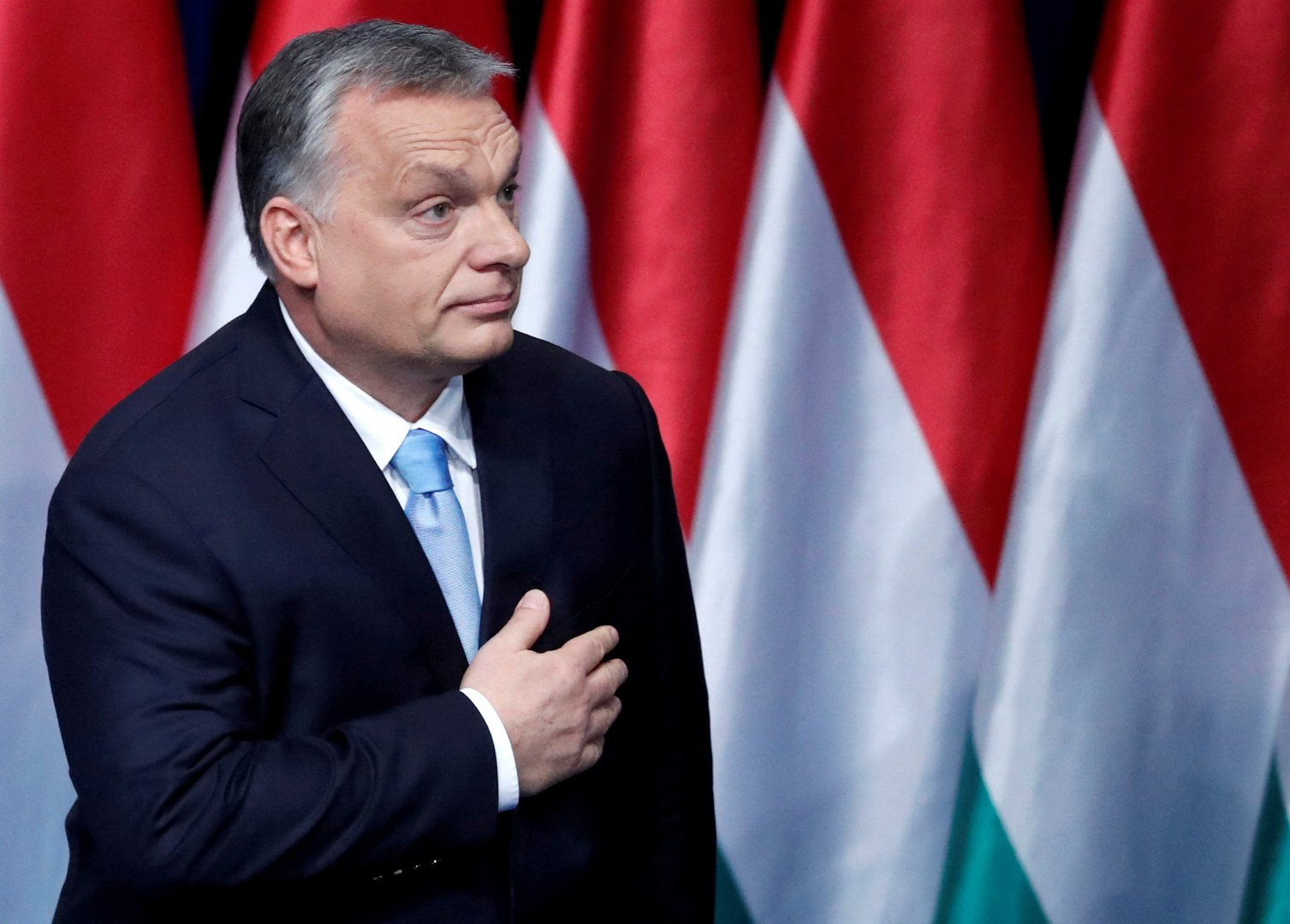Russian President Vladimir Putin may not be able to save himself, but he may already have saved another despot, Hungary’s Prime Minister Viktor Orban. There’s an election in Hungary on Sunday, and it looks like Orban may actually win it. A month ago he was trailing the opposition badly, but then Russia invaded Ukraine.
Hungary is one of the new-model ‘soft’ dictatorships that look like democracies to the average passer-by. After all, there are no secret police, you can criticise the government publicly, and they actually count all the votes in the elections. Sometimes they find a few extra votes as well, but Orban really has won three more or less fair elections in a row.
Yet he actually is a dictator (‘The Viktator’, some people call him) despite the free elections. They don’t need to be rigged in advance, because Orban controls almost all the media that the voters get their information from. And he doesn’t even need to win a majority of the votes, because the election districts are gerrymandered in his favour,
He eliminated the ‘liberal’ media by making them unprofitable (no government advertising, expensive lawsuits, etc.), and then getting rich friends to buy them up at bargain prices and sing his praises in them. Over 90 per cent of the Hungarian media are pro-Orban, although there is no formal censorship.
He got away with it by expanding the constitutional court and packing it with stalwarts of his ‘Fidesz’ party. He also took control of the lower courts by forcing all judges over 62 to retire and appointing Fidesz members instead. And he sometimes creates fake political parties in election years to draw off some of the anti-Orban vote.
Orban’s greatest success was extending citizenship to over a million ethnic Hungarians who live as minorities in surrounding countries – and also giving them access to generous Hungarian social benefits. They may never have been to Hungary, but they make up one-tenth of the electorate, they take the money – and 95 per cent of them vote for Fidesz.
In the media, there is a ceaseless torrent of hate propaganda against minorities (Jews, Roma, and gays) and especially immigrants. For a dozen years the country has been told that Fidesz is their only defence against an Islamised Hungary where real Hungarians would be an oppressed minority, although no sane Muslim would ever voluntarily choose to live there.
A depressingly large number of Hungarians, mostly older, poorly educated or rural, believed the whole package, but Orban’s victories also depended on the fact that the opposition parties were chronically at war with one another. This time he was in serious trouble, because all six of them had managed to come together and back the same candidate.
They couldn’t agree on much else, so the challenger they chose was a rather colourless centre-right politician called Peter Marki-Zay. Nevertheless, enough people were fed up with the cronyism and the lies that by a month ago Fidesz and the opposition alliance were running neck-and-neck. And then Russia invaded Ukraine.
That should have been a disaster for Orban, who rivals Donald Trump in his fanboy adulation of Putin. He even had to slam into reverse gear and let 450,000 Ukrainian refugees into the country. That’s only a fifth as many as Poland has taken, but it’s thirty times as many as the United Kingdom has accepted so he’s safely in the middle of the European pack.
He was just as quick in switching his foreign policy narrative. Instead of holding off the Muslim hordes, now he was keeping Hungary out of the war in Ukraine. “The opposition has lost its mind,” he said in rally on 15 March.
“They would walk into a cruel, bloody and protracted war and they want to send Hungarian troops and guns to the front-line. We can’t let this happen. Not a single Hungarian can get caught between the Ukrainian anvil and the Russian hammer.”
It’s all nonsense, of course. The opposition coalition never said any such thing, and Hungary is a member of the Nato alliance, which constantly declares that under no circumstances will it get directly involved in the war in Ukraine. Hungary couldn’t send troops into Ukraine even if it wanted to.
But it worked. By mid-March Fidesz was leading the opposition alliance by a clear 8 per cent, although more recent polls have shown Orban’s lead narrowing. For a people with a reputation for being clever, even cunning – ‘the only people who can go into a revolving door behind you, and come out of it in front of you’ – Hungarians are embarrassingly naive.
Could this be a clue to why some countries get seduced by these manipulative would-be autocrats while others do not? Are Americans more naive than Canadians? Are Russians more easily fooled than Ukrainians? Food for thought, but I’ve said enough.
Gwynne Dyer’s latest book is ‘The Shortest History of War’







Click here to change your cookie preferences